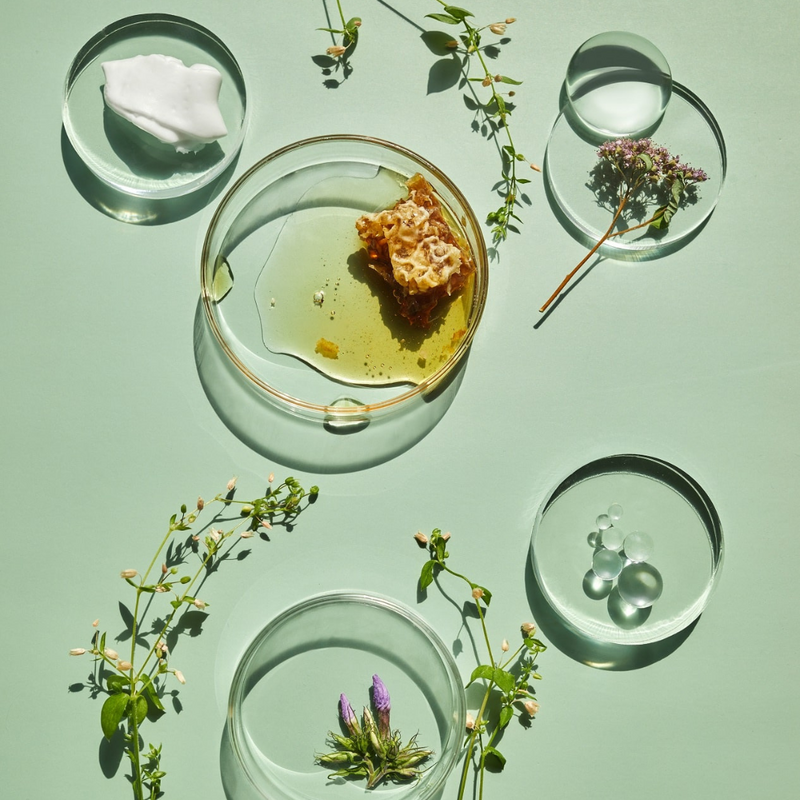Hectic pace of life, long days, lack of sleep... Caught up in everyday life, we sometimes have the impression of swimming in the opposite direction. And it's not just an impression.
Our body has its own rhythm that we tend to ignore to cope with the demands of the modern world. What we forget is that this internal biological clock, set to 24 hours, controls all our functions by imposing its cadence: it is the circadian rhythm.
How does it act on the body? How to recognize and preserve it? Days of Confidence highlights this key phenomenon of our vitality.
What is circadian rhythm?

All living beings - humans, animals, plants, bacteria - function according to precise biological rhythms which regulate their organism. There are 3 types of rhythms: the circadian rhythm, the infradian rhythm and the ultradian rhythm, each determined by a different period.
The circadian rhythm lasts approximately 24 hours. The Infradian rhythm is longer. The menstrual cycle, set to 28 days, is a good example. The ultradian rhythm is less than 24 hours. This is the case with heart rate.
The circadian rhythm constitutes the reference rhythm both in humans and in nature. It is based on the alternation of day and night. Flowers, for example, live to the rhythm of the sun and come to life differently depending on the position and intensity of the light. But each species has its own temporality. Some open at dawn while others do so after dark so that insects can find pollen to feed on throughout the day. Nature is well made ! And the human body does not escape its laws.
In fact, the circadian rhythm controls almost all functions of the human body. Each individual has their own rhythm which generally varies between 11:30 p.m. and 24:30 p.m. This is what we more commonly call “biological clock” or “internal clock”. Determined in the brain at the level of the hypothalamus, it orchestrates the different metabolisms according to a very precise order and rhythm. Sleep, hormone production, body temperature, nothing escapes its control.
Our rhythm depends largely on the secretion of melatonin, the so-called sleep hormone whose production varies depending on the intensity of light. It begins at the end of the day when the light decreases, reaches its peak between 3 and 4 a.m. and decreases until the sun rises. It is then cortisol, considered the stress hormone, which takes over to prepare the body for the phase of activity and vigilance. There is therefore a close link between the circadian rhythm and light. To be continued…
The importance of good light hygiene?

Light plays a key role in synchronizing the internal clock. It is captured by photoreceptors present in the retina which transmit an electrical signal to the nervous system, which causes a natural and automatic reset of the biological clock every 24 hours.
A good balance between exposure to natural light during the day and darkness at night is key to ensuring the harmonious functioning of the body. This is what can be designated by the term “ light hygiene ”.
The alternation of day and night induces the secretion of melatonin which in turn leads to the secretion of cortisol and a cascade of other hormones that the body needs throughout its activity phase, such as the ghrelin-leptin couple responsible for regulating appetite.
Early or late exposure to light can therefore impact the body's various functions and cause stress which, if it becomes chronic, can have deleterious consequences on health. In fact, an irregular work rhythm can be the cause of metabolic disorders and certain pathologies. Recent studies have also highlighted the impact of night work on health.
It is therefore better to get in tune with your internal clock to preserve yourself. But do you know your circadian rhythm?
How to know your circadian rhythm and preserve it?

Have you ever been asked if you are a morning person or a night person? This question is not trivial because it can help you identify your own circadian rhythm variation. Think about what you would do with your day if you had no constraints or sleep debt to catch up on. What time would you naturally get up? When do you feel your healthiest? These indicators are a reflection of your biological clock. Recognizing them is essential to coming to terms with it.
This is where the reality principle comes into play. Between professional constraints, social demands and family life, our lives are often organized to the detriment of our needs. However, a cold, weight gain, food cravings, can be a sign that your clock is out of whack. The best way to resynchronize it is to sleep, provided you do it well.
It's no secret that sleep plays a key role in health. It allows the body to regenerate, eliminate toxins, improve cognitive abilities, repair possible injuries, etc. But above all, it is responsible, via the melatonin cycle, for the regulation of glucocorticoids.
This group of hormones, including cortisol, is synthesized by the adrenal cortex and controls many functions, such as immune, inflammatory and stress responses. To maintain an optimal and effective level of glucocorticoids, and therefore preserve our metabolisms, we must ensure that we respect the activity-rest alternation on which melatonin depends; in other words, respect the circadian rhythm.
Easier said than done when we know that in France 1 in 3 people are affected by sleep disorders.
Whether or not this is your case, here are some simple tips to set the record straight.
-
Limit light sources, especially blue light emitted by screens, at least one hour before bedtime. Smartphone, tablet or television activate 70 times more photoreceptors than white light, delaying the production of melatonin and therefore falling asleep. Conversely, exposing yourself to daylight, and to the sun sparingly, early in the morning is valuable advice for getting back into alignment with the circadian rhythm.
-
Avoid intense physical activity in the evening as this promotes the production of cortisol and reactivates alertness.
-
Go to bed at a set time and get enough sleep according to your needs.
-
Light dinner, preferably before 8 p.m., to allow the digestive system to rest to promote the elimination of toxins.
-
Harmonize with the rhythm of the seasons. It is completely normal to need more sleep in winter and less in summer. The darker it is, the more the melatonin level increases, the shorter the waking phase.
-
Create a relaxing evening routine to prepare for bed. It is possible to help the body to go to sleep, thanks to micronutrition for example. The Days of Confidence Serenity Complex soothes the nervous system and promotes sleep thanks to Ashwagandha, an adaptogenic plant with calming properties. For even more relaxation, why not combine it with the Soothing Facial Oil with regenerating and antioxidant properties and treat yourself to a moment of softness before slipping into the arms of Morpheus?
In the opposite direction, faced with the various daily stresses, there is nothing like a synergy of natural active ingredients with a boosting effect thanks to the Vitality Complex , ideal for starting the day off on the right foot.
The circadian rhythm is none other than the reflection of the internal clock which orchestrates the functioning of the body according to a well-established score. In 24 hours, between activity and rest, the body knows what it has to do and comes alive according to a precise and innate balance. Respecting it means ensuring that it preserves its functions as best as possible and thus reduces health risks. To do this, we must know how to listen to ourselves and abandon certain habits that go against our vital needs. Far from an admission of weakness, it is a necessity.














